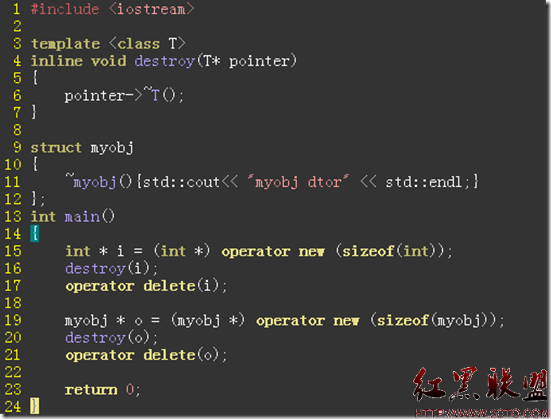sgi stl 中有個全局函數,destroy,發現對一個指針參數進行調用時,僅有一個實現。如下:

也就是說針對普通類型(如int,bool等等),也是調用的這個函數。
做了如下測試:

確實可以如此簡寫。(其實是c++標准,為了簡化而提供的支持)
It's the reason that makes your code work for generic parameters. Consider a container C:
template<typename T>
struct C {
// ...
~C() {
for(size_t i = 0; i<elements; i++)
buffer[i].~T();
}
};
It would be annoying to introduce special cases for built-in types. So C++ allows you to do the above, even if T happens to equal to int. The holy Standard says in 12.4 p15:
The notation for explicit call of a destructor can be used for any scalar type name. Allowing this makes it possible to write code without having to know if a destructor exists for a given type.
The difference between using a plain int and a typedef'ed int is that they are syntactically different things. The rule is, that in a destructor call, the thing after the ~ is a type-name. int is not such a thing, but a typedef-name is. Look it up in 7.1.5.2.